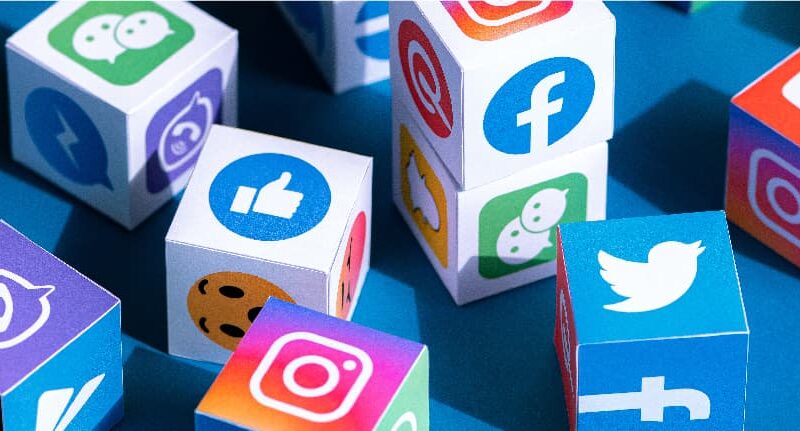In recent decades, there has been a radical shift in the way people access information and interact with one another. While in the past public opinion was shaped by traditional media — newspapers, television, and radio — today social media platforms are gaining increasing importance. Facebook, Instagram, TikTok, Twitter, and their local counterparts have become not just communication tools, but powerful instruments of influence. This is especially evident in countries like Hungary, where internet penetration is consistently high, and the number of active social media users continues to grow.
Social platforms have become the main channels of communication not only between individuals, but also between citizens and the state, companies and consumers. This shift towards digital interaction is transforming the very principles of public opinion formation.
Mechanisms of Influence: From Likes to Political Decisions
Social networks have changed the very logic of information dissemination: now every user can be not only a recipient but also a source of content. This opens new horizons for self-organization and mobilization, while also complicating control over the quality and reliability of information.
Algorithms Shaping Reality
Social media does not merely reflect public opinion — it shapes it. The key role is played by algorithms that select content based on the user’s interests. As a result, a so-called “information bubble” is created — the user sees only those posts that align with their views and rarely encounters opposing perspectives. This limits the diversity of opinions and strengthens existing beliefs, reducing critical thinking and increasing societal polarization.
Viral Effect and Emotionality
Content that provokes strong emotional responses — whether anger, admiration, or fear — spreads especially quickly. This leads to a situation where emotions become more prominent than facts. Posts designed to attract attention often prove more influential than those based on verified information. In an environment where popularity overshadows accuracy and importance, public opinion is increasingly shaped by manipulation.
Politics, Protests, and Mobilization Through Social Media
The active use of social media in political processes has become the norm across most European countries, including Hungary. Users connect based on shared interests, exchange opinions, and form digital communities capable of influencing real-world events.
Impact on Elections and Public Campaigns
Social networks are not only spaces for private communication but also arenas of sociopolitical processes. In Hungary, there have already been cases where mass protests were organized via Facebook and Telegram, and major initiatives spread through hashtags and stories. Thanks to the speed of information distribution, even small movements can gain thousands of supporters within hours.
However, this digital openness has its downside: fake news, propaganda, and organized disinformation campaigns. This becomes especially evident during election periods, when candidate pages, political memes, and targeted ad campaigns become key tools in the battle for voter attention.
Impact on Youth and Perception of Reality
Young users are the most susceptible to influence, as they spend more time on social networks and interact more often with visual and short-form content. Their views and preferences are often shaped entirely in a digital environment, where it is harder to distinguish truth from manipulation.
A New Style of Information Consumption
Youth is the core audience of social networks. They are most frequently affected by emerging trends, digital opinion leaders, and influencers. For many teenagers, Instagram or TikTok replaces news, books, and even education. As a result, their perception of reality becomes increasingly distorted: there is an illusion that life must be perfect, as shown in retouched photos and videos, which can lead to lowered self-esteem, anxiety, and even depression.
On the other hand, young people are becoming active participants in social processes. They express their views, engage in online discussions, and create their own blogs and YouTube channels. In this way, social media gives a voice to those who previously remained unheard — and this is a major achievement of the digital era.
The Role of Platforms and User Responsibility
The role of social media in modern society is dual in nature. On one hand, they enable freedom of expression and access to information; on the other, they create risks that require a conscious approach from all participants in the digital environment.
Where Is the Line Between Free Speech and Manipulation?
One of the most pressing questions is the boundary of responsibility. Who should control the content of social networks: the platforms themselves, the government, or the users? On one hand, censorship is unacceptable in a democratic society; on the other, without moderation, it is impossible to combat disinformation, hate speech, and cyberbullying. Platforms like Meta (Facebook) and X (formerly Twitter) are increasingly criticized — for excessive control as well as for negligence.
What Can We Do?
Users are not just passive consumers of content. Every person influences the information space: sharing news, commenting, and publishing their own posts. That is why critical thinking, source verification, and awareness of the consequences of one’s digital actions are key competencies in the 21st century. A conscious approach to information consumption is the main way to protect oneself from manipulation and preserve independent thinking.
Conclusion: A Digital Mirror of Society
Social media has become an integral part of our lives — in Hungary and worldwide. It offers opportunities for self-expression, communication, and information access, while simultaneously carrying risks of disinformation and manipulation. Public opinion is now formed more rapidly, yet is increasingly vulnerable. This is why it is crucial to learn not only how to use digital tools but also to understand how they influence our beliefs and choices. In a world where information has become a weapon, the ability to think critically is the best defense.
